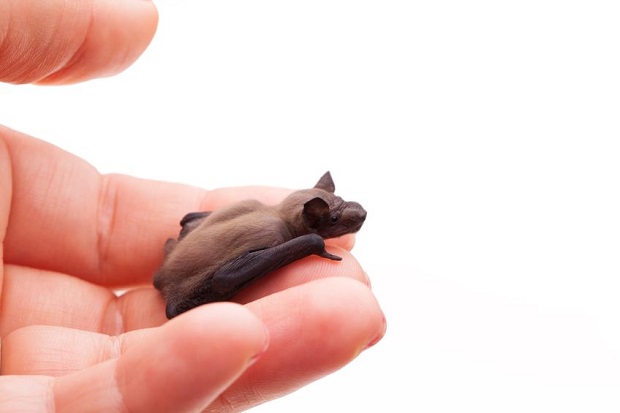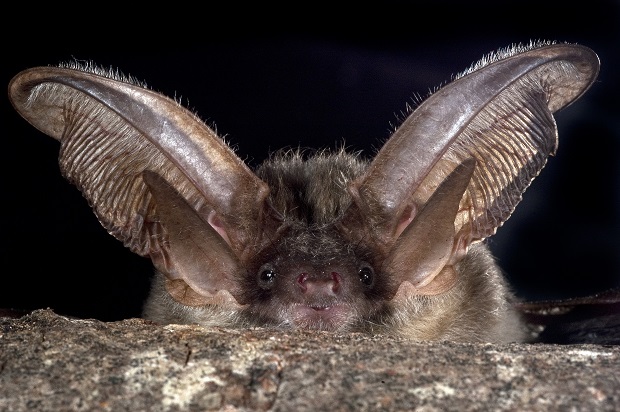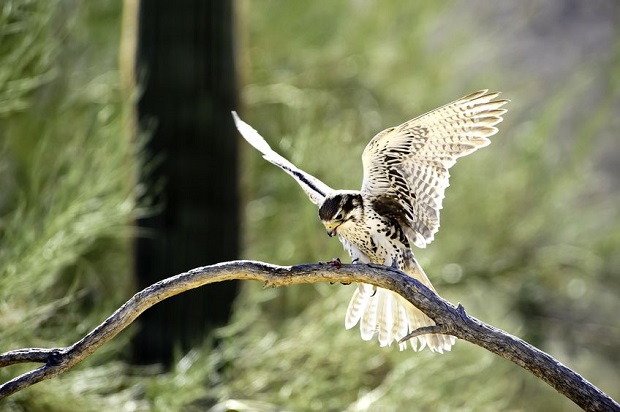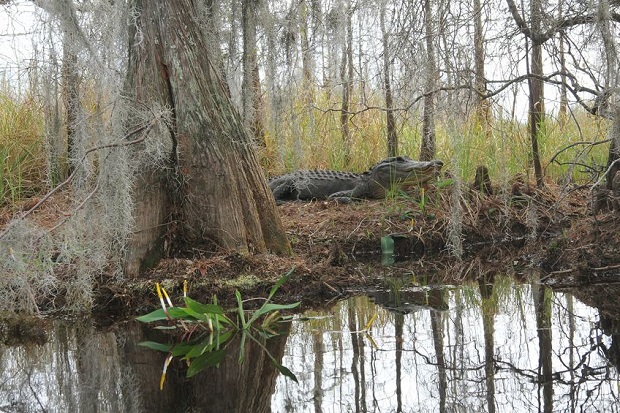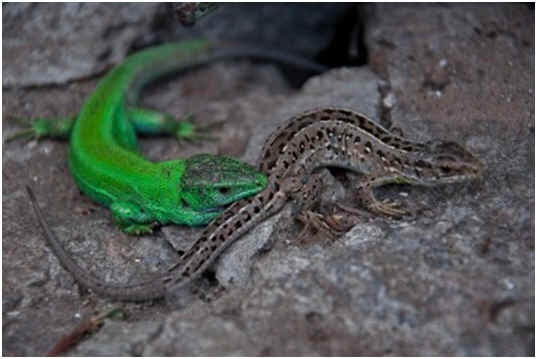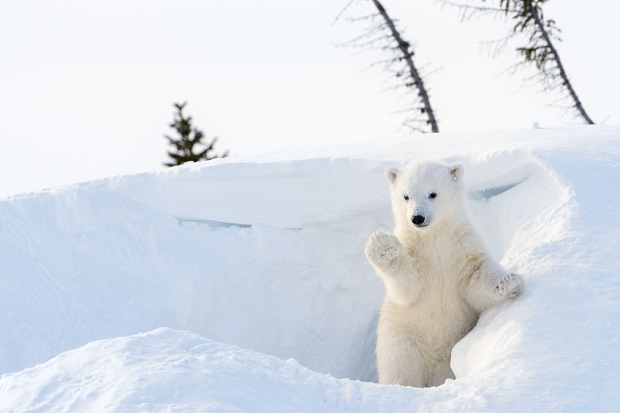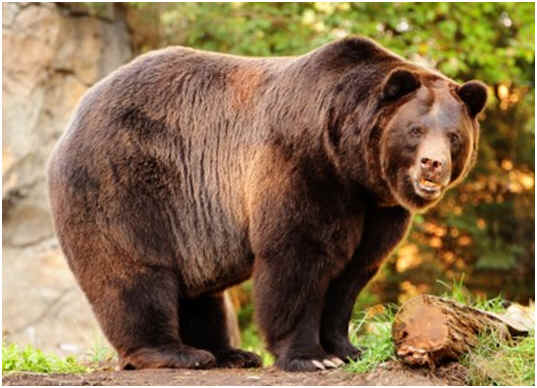
Are Bears Nocturnal?
North America is home to three species of bears: black, brown, and polar bears. None of the three species is exclusively nocturnal. [1] The black bear is primarily nocturnal. The brown bears’ nocturnal habits depend on the gender of the animal. And the word nocturnal means nothing to the polar bear that lives in arctic regions that experience months of all daylight or all darkness.
Jump Ahead
- The Black Bear Is Primarily Nocturnal
- Brown Bears Are Nocturnal Depending On Gender
- Day and Night Are Irrelevant to Polar Bears
- Resources
The Black Bear Is Primarily Nocturnal
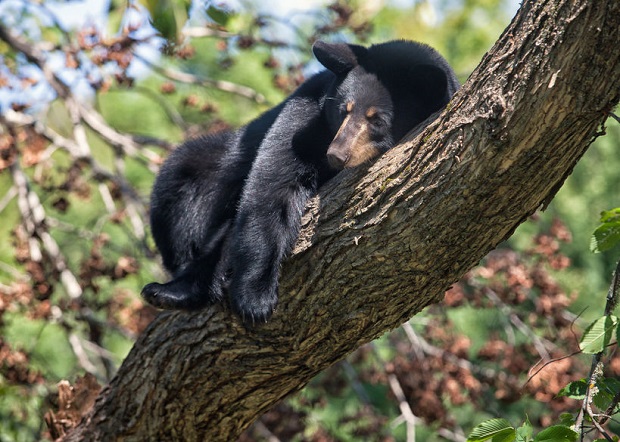
Generally speaking, the black bear is nocturnal, feeding from dusk until dawn. But that doesn’t mean you won’t see a hungry bear in the daytime. This is especially true in the months before winter hibernation when a black bear is fattening up for his long winter slumber. During this time, a black bear may eat up to twenty hours daily, ingesting more than 20,000 calories. Eating twenty hours per day means that the black bear is not nocturnal during this time of year. [2]
Brown Bears Are Nocturnal Depending On Gender
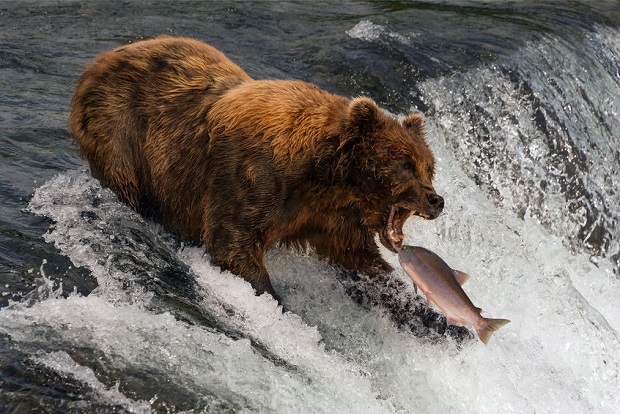
Brown bears are generally reported as being diurnal, meaning that they forage for food during the day, but when researchers from The University of Victoria studied the nocturnal and diurnal foraging behavior of brown bears, they found that this fact was not entirely true. The team observed the bears during the salmon spawning season and found that a mother brown bear that is with her cubs feeds during the day. The opposite was true of the adult male brown bears. They foraged equally in the daytime and the nighttime. Interestingly, the team noted that the capture rate was higher during the evening. [3]
Day and Night Are Irrelevant to Polar Bears
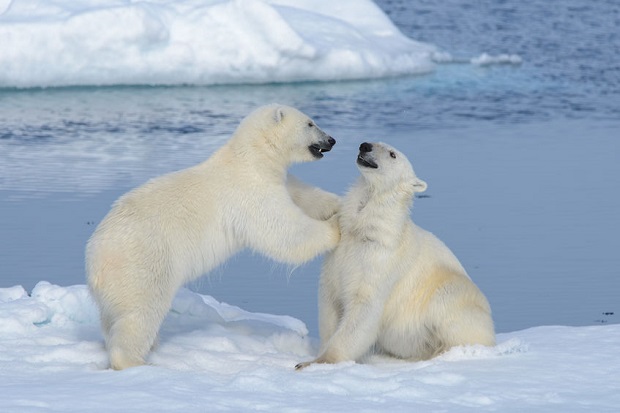
Asking if a polar bear is nocturnal is a trick question. Polar bears live in arctic regions that experience months of darkness and months of daylight, depending on the time of year. If polar bears only foraged for food when it was dark out, they would not eat for months. The same would be true if they only foraged for food when it was light out. Like most animals, polar bears hunt for food when it is available. For example, if the seals of the region are active at night, this is when the polar bears will hunt. [4]
The sleeping habits of polar bears are similar to humans in that they sleep for 7-8 hours per day. They also like to nap. [5]
Resources
- [1] National Parks Service -“Types of Bears”
- [2] Pennsylvania Game Commission – “Living with Pennsylvania Black Bears”
- [3] Klinka, D.R., Reimchen, Thomas E. Canadian Journal of Zoology. “Nocturnal and diurnal foraging behaviour of brown bears (Ursus arctos) on a salmon stream in coastal British Columbia.” 80(8): 1317-1322.
- [4] National Oceanic and Atmospheric Administration – PMEL Arctic Zone – “Daylight, Darkness and Changing of the Seasons at the North Pole”
- [5] Polar Bears International – “Polar Bears Behavior”
